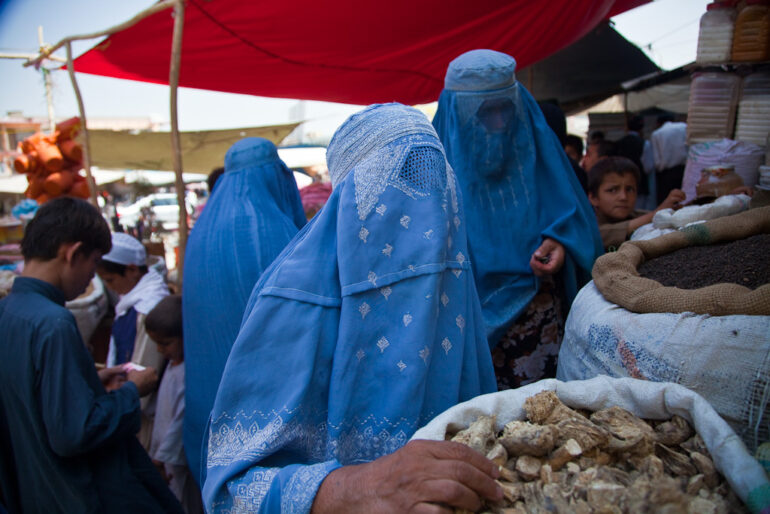Voted as the most dangerous country for women, recent news of deteriorating women’s rights in Afghanistan has angered many. Though the oppression of women has stretched since the 1980s, international organizations have started campaigning against the issue again within recent weeks.
For context, during the Taliban’s occupation in 1996, they enforced specific bans on women and girls. According to Amnesty International, some of these included: “going to school, studying, working, leaving the house without a male chaperone, showing their skin in public, accessing healthcare delivered by men (with women forbidden from working, healthcare was virtually inaccessible), [and] being involved in politics and speaking publicly.”
In other words, women in Afghanistan had little to no freedom under the Taliban’s control. It was also reported, “Men could commit domestic violence, injure and even kill their female family members with impunity. Instead, women who suffered rape, and other forms of violence could end up being accused of ‘moral crimes’ and adultery and risk being stoned to death as punishment.” Not only did the law discriminate against women, it also protected men.
The United States brought hope to women when their involvement began in 2001. “In the years following international intervention… There was progress towards equality; women’s rights were enshrined in the new constitution in 2003, and in 2009, Afghanistan adopted the Elimination of Violence Against Women (EVAW) law.”
However, in 2021 the Taliban took power once again. Without surprise, new institutions have been set in place, diminishing any hope Afghan women once harbored. The Washington Post reports, “The new religious code issued late last [August] bans women from raising their voices, reciting the Quran in public and looking at men other than their husbands or relatives. It requires women to cover the lower half of their faces in addition to donning a head covering they were already expected to wear, among other rules.”
The situation appears to be especially oppressive in Afghanistan’s capital, Kabul, due to the opulence of the morality police. Amnesty International states, “In Kabul, residents were ordered to cover their ground and first-floor windows so women inside could not be seen from the street. If a woman left the house, it was in a full body veil (burqa), accompanied by a male relative: she had no independence.”
Civil society activist Shamail Zarei told Amnesty International: “Since the Taliban took power [in 2021], I was hiding, and I could not do what I was doing before. There is no future for me and millions of other women and girls.” Another women’s rights activist told The Washington Post that “The entire country has turned into a graveyard for women’s dreams.” The interviews Washington Post attained were given “on the condition that they remain anonymous or that only their first names be published due to fear of drawing unwanted scrutiny from the Taliban regime.”
Though the issue of women’s rights has been a controversy in many nations, the situation in Afghanistan appears to be especially alarming. For one, most women’s rights movements have progressed in a positive direction– where women attain their rights at a slow pace. However, in Afghanistan currently, women are losing their rights day by day. Amnesty International writes, “Throughout the changing political landscape of Afghanistan in the last fifty years, women have been campaigning for their rights and made some gains but the issue has also been exploited by different groups for political gain.” Under the current restrictions imposed by the Taliban regime, the Washington Post reports, “Many women in Kabul say they doubt the Taliban’s religious justifications for the rules, and there is widespread speculation that the regime is adding restrictions on women’s rights so it can later bargain them away in negotiations with international agencies and foreign capitals.”
Although the political and social landscape in Afghanistan has largely been hostile for women, the worsening issue has been reappearing in headline news. The new laws enacted by the Taliban regime, under their justification of religion, have diminished nearly all rights women previously had or hoped to have. With ongoing speculations about the future of Afghan women, activists and other supporters of women’s rights globally are constantly gathering new information to spread awareness.







